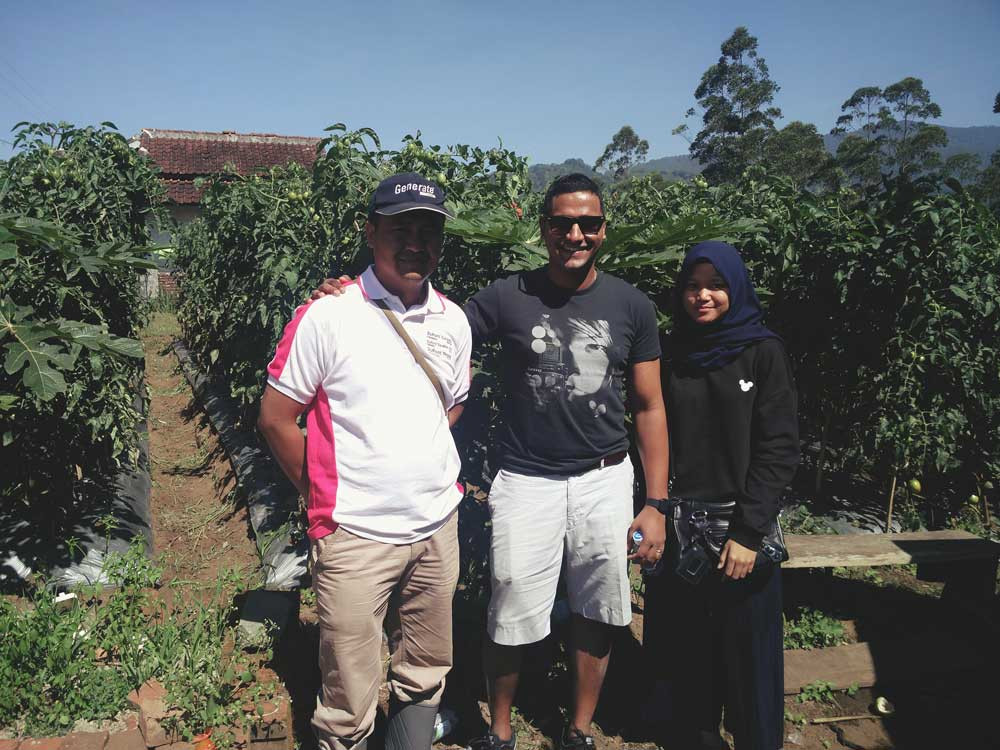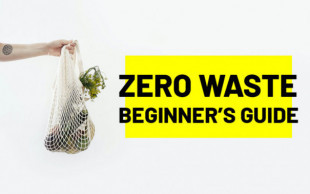Featured in Forbes Magazine and named as one of the top 10 social entrepreneurs in Indonesia by Asian Organisation, Hemant Chanrai has always sought ways in which he could give back to society.
After his education in the UK, Hemant returned to Indonesia to set up Azzura Solar which provided home solar power systems for low income rural communities. To date, they have provided over 300,000 lumens and 5,000 extra study hours for children living without power.
Since then, Hemant has set up a new venture called Eight Four Capital, an impact fund which invest in agri-entrepreneurs by providing technology for smallholder farmers to help improve crop yield & product efficiency.
STYLEGUIDE speaks to Hemant to find out more about his journey as a social entrepreneur:
Tell us more about yourself, what’s your story?
I have always wanted to be a helpful person and provide solutions for the underserved, so when it came down to starting my own company it was important to develop financial as well as social profit.
Growing up, I had a strong foundation which never allowed me to forget how good I had it, so at a very early age I understood how important it was to give back to society, especially to a country which I called home for over twenty years, Indonesia.
Our impact fund, Eight Four Capital, allows me pursue my business interests while serving a community.
How did Eight Four Capital get started?
In 2014, I used to run a small social enterprise aimed at providing solar power lighting systems for rural communities throughout Java. After three and a half years and 4,000 installations, I unfortunately had to call it quits when my family relocated to Singapore.
Having spent countless hours trekking through villages and farmland, I built a strong connection with many communities along the way, making friends with farmers and their families as we made our way through the rural landscape.
I wanted to build on my experience and passion for social welfare development, so developing an impact fund with a strong social mission was a no-brainer.
Many communities where I visited relied on farmland as a stable source of income, and that’s what Eight Four Capital focuses on - providing low interest loans for smallholder farmers.

Pak Pipit and Hemant at his tomato farm in Pangalengan, West Java.
What were some of the biggest challenges that you faced along your journey?
Before I had a team, I had to handle every task that came with running a business, from marketing to fundraising. All this while having to liaise with our network of farmers to keep me updated on their progress.
The daily checklist was growing, and I was stretched way too thin to the point that I sped through tasks, resulting in half-arsed work.
Now that I have a team, I'm able to make sure things are done properly and not rushed.
Ironically, having a team had posed another small challenge.
Having worked alone for a long time I rarely took any opinions onboard, I would run the path that worked best for me without any real input from anyone.
I had to change my way of thinking, and appreciate input from our team over in Indonesia who spend a lot more time on the ground.
I had to respect their opinion and learn to listen to their ideas and perspective.
Eight Four Capital is a team effort, not a one man show.
Can you share more about some of the most memorable and unforgettable experiences you’ve had?
I've had some memorable experiences, many good, some bad over the past 2 years.
On one of our first trips to the farms I somehow managed to trip over my own foot and land on a warm pile of cow dung.
The rest of the day nobody wanted to stand close to me, not that I blame them, and the 3 hour ride back home tested the limits of my sense of smell.
It was definitely ‘memorable’.
What are your thoughts on social entrepreneurship?
There is a growing market for social entrepreneurship, especially from younger business savvy entrepreneurs who are genuinely concerned about many of the social issues plaguing much of our world, from healthcare and food security, to waste management and climate change.
No one wants to set up a charity and ask for donations all the time, that’s boring and old fashioned.
Creating a revenue generating social enterprise will instead help you grow and reach a wider audience, helping you scale and attract investors.
Social entrepreneurs must be people focused, and work extra hard at what they do, mainly because their business is linked to enhancing the lives of their customers.
It isn't a traditional business model where transactions are purely monetary, and customers can choose who they engage with.
Social entrepreneurs are out there to develop products and services aimed at increasing the well-being of others, which shouldn't be taken lightly.

Eight Four Capital partner, Sunny Irrigation CEO (far right) with county irrigation officials in Kakamega County, Kenya.
There is a growing spirit of volunteerism in Singapore, what more can people do and what should we be careful about?
It's great to live in such a clean, safe and organised country like Singapore, where much of life runs efficiently and without much hassle, but it also means we are disconnected from the harsh realities that face millions in South East Asia.
Volunteering overseas in countries where much of the population live below the poverty line will always make you appreciate what you have back home.
Donating to charities is usually a good thing, but not all charities are created equal, so as a donor don’t be afraid to ask questions.
You may be surprised to find out just how much money actually makes to the beneficiaries once you subtract overheads and funding costs, so be careful and do your research.
Some questions you may want to ask charities:
Do you provide regular operating reports?
Can I contact the recipients of my donation?
Can you outline some of your fees and costs?
What are the 3 biggest lessons you’ve learnt throughout this journey?
1. Have a plan - You have to have a workable roadmap and growth strategy for your business from day 1, then you can backtrack and plan for that success. You can’t think of things day by day, because you will move too slowly, it helps to create an image of what your company will look like in the next 2 or 5 years, and work your way towards making it happen.
2. Develop some thick skin - You are going to hear the word "NO" much more than you will hear the word "YES", so if you take things to heart and get upset easily, snap out of it.
3. Don’t isolate yourself - You only know what you know, but others know what you don’t know, so try to be open to new ideas and perspectives.
If you could give your younger self one piece of advice, what would it be?
Toughen up, no one likes a wimp.
Who is a role model that you look up to and really admire?
John Mcaleese, a former SAS soldier who passed away in 2011 who had a remarkable life, which included the rescue of hostages in the the 1980 Iranian embassy siege in London and covert ops in the Falklands war.
He was a tough warrior with a great sense of humour, portrayed in the recent movie, 6 days. Pretty cool guy.
What are your future plans for Eight Four Capital?
We currently lend to farmers in Indonesia and Kenya but are actively looking at other regions to enter such as Myanmar and India.
Each market offers a completely different set of risk factors, so we are taking our time to find the right partners to work with around South East Asia.
Another ‘project’ we have been working on is an app which helps farmers sell produce directly to end users, effectively cutting out the middleman.
It’s more of an experiment we are working on just to see if it gains any traction.

















